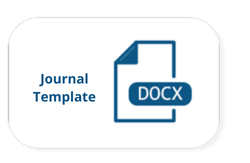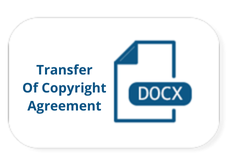Focus and Scope Editorial Team Reviewers Peer Review Process Ethical Statement Contact Us Open Access Policy Copyright Notice Author Fees
Ethical Statement
Ethical guidelines for journal publication
ALAM Journal of Maritime Studies (AJMS) is a peer – reviewed journal published annually by Akademi Laut Malaysia (ALAM). We welcome original contributions related to Maritime Safety, Maritime Education, Maritime Management, Marine Engineering, Maritime Technology & Informatics, or other related fields. ALAM is committed in inculcating research culture via AJMS, which serves as a platform for authors and researchers to share their knowledge and expertise across the stipulated research areas. Manuscripts on those fields are welcomed to be submitted and reviewed in this journal.
ALAM Journal of Maritime Studies (AJMS) as publisher takes its duties over all publishing processes and we recognize our ethical and other responsibilities.
We are committed to ensuring that advertising, reprint or other commercial revenue has no impact or influence on editorial decisions. In addition, ALAM Journal of Maritime Studies (AJMS) and the Editorial Board will assist the communications with other journals and/or publishers whenever this is useful and necessary.
DUTIES OF AUTHORS
(based on Elsevier policies and COPE's Best Practice Guidelines for Journal Editors)
Reporting standards
Authors must accurately present their research and its significance, ensuring data integrity and providing enough detail for replication. Fraudulent or inaccurate statements are unethical. Review articles and editorial opinions should maintain objectivity and clarity.
Data access and retention
Authors might need to supply raw data for editorial review and should be ready to grant public access to it if possible. At the very least, they should retain the data for a reasonable period after publication.
Multiple, redundant or concurrent publication
It's unethical for an author to publish the same research in multiple journals simultaneously or to submit a previously published paper to another journal. Exceptions may apply for certain types of articles, but only if agreed upon by all involved parties, with proper citation and adherence to original data and interpretation.
Acknowledgement of sources
Always acknowledge the work of others by citing influential publications. Obtain explicit, written permission before using or reporting privately obtained information from conversations, correspondence, or discussions. Similarly, information obtained during confidential services like manuscript refereeing or grant application review must not be used without the author's written permission.
Authorship of the paper
Authorship should be reserved for those who significantly contribute to the study's conception, design, execution, or interpretation. All significant contributors should be listed as co-authors, with others acknowledged as contributors if they participated in certain substantive aspects of the research. The corresponding author is responsible for ensuring appropriate co-authorship and for the approval of the final manuscript.
Disclosure and conflicts of interest
Authors must disclose any financial or substantive conflicts of interest that could affect the interpretation of their manuscript. This includes sources of financial support and potential conflicts such as employment, consultancies, stock ownership, honoraria, expert testimony, patents, and grants. Disclosure should occur as early as possible in the manuscript process.
Fundamental errors in published works
If an author finds a major error in their published work, they must inform the journal editor promptly and collaborate to retract or rectify the paper. Similarly, if a third party alerts the editor or publisher about a significant error, the author must act promptly to retract or correct the paper, or provide evidence of its accuracy.
DUTIES OF THE EDITORIAL BOARD
(based on Elsevier policies and COPE's Best Practice Guidelines for Journal Editors)
Publication decisions
The editor of peer-reviewed AJMS is responsible for selecting articles for publication based on the validation and significance of the work to researchers and readers. Decisions may be guided by journal policies and legal requirements regarding libel, copyright, and plagiarism. The editor may also consult with other editors or reviewers during the decision-making process.
Fair play
Editors should assess manuscripts based on their intellectual content, disregarding the race, gender, sexual orientation, religious belief, ethnic origin, citizenship, or political philosophy of the authors.
Confidentiality
The editor and editorial staff should only share information about a submitted manuscript with the corresponding author, reviewers, potential reviewers, other editorial advisers, and the publisher as necessary.
Disclosure and conflicts of interest
Editors must obtain express written consent from authors before using unpublished materials from a submitted manuscript for their own research. They must keep confidential any privileged information or ideas obtained through peer review and refrain from using them for personal gain. Editors should recuse themselves from handling manuscripts in cases of conflicts of interest arising from relationships with authors, companies, or institutions involved in the papers. All contributors should disclose relevant competing interests, and corrections or retractions should be published if necessary.
Involvement and cooperation in investigations
Editors must promptly address ethical complaints regarding submitted manuscripts or published papers in collaboration with the publisher or society. This involves contacting the author, considering the complaint, and potentially communicating with relevant institutions or research bodies. If the complaint is substantiated, corrective actions such as corrections, retractions, or expressions of concern should be taken. Every reported instance of unethical publishing behaviour must be investigated, regardless of when it is discovered.
DUTIES OF REVIEWERS
(based on Elsevier policies and COPE's Best Practice Guidelines for Journal Editors)
Contribution to editorial decisions
Peer review aids the editor in making editorial decisions and can help authors improve their papers through feedback. It's a crucial aspect of scholarly communication and is fundamental to the scientific method.
Promptness
If a selected referee feels unqualified to review a manuscript's research or cannot review it promptly, they should inform the editor and decline the review process.
Confidentiality
Manuscripts received for review must be treated as confidential and should not be shared or discussed with others without the editor's authorization.
Standards of objectivity
Reviews must be conducted objectively, avoiding personal criticism of the author. Referees should express their views clearly, providing supporting arguments.
Acknowledgement of sources
Reviewers must pinpoint any relevant literature not acknowledged by the authors and provide citations for previously reported findings. They should alert the editor to significant similarities between the manuscript and other known publications.
Disclosure and conflict of interest
Reviewers must obtain explicit written permission before using unpublished materials from submitted manuscripts in their own research. They must keep confidential any privileged information or ideas acquired through peer review and refrain from using them for personal gain. Reviewers should abstain from assessing manuscripts if they have conflicts of interest arising from competitive, collaborative, or other affiliations with the authors, companies, or institutions associated with the papers.












